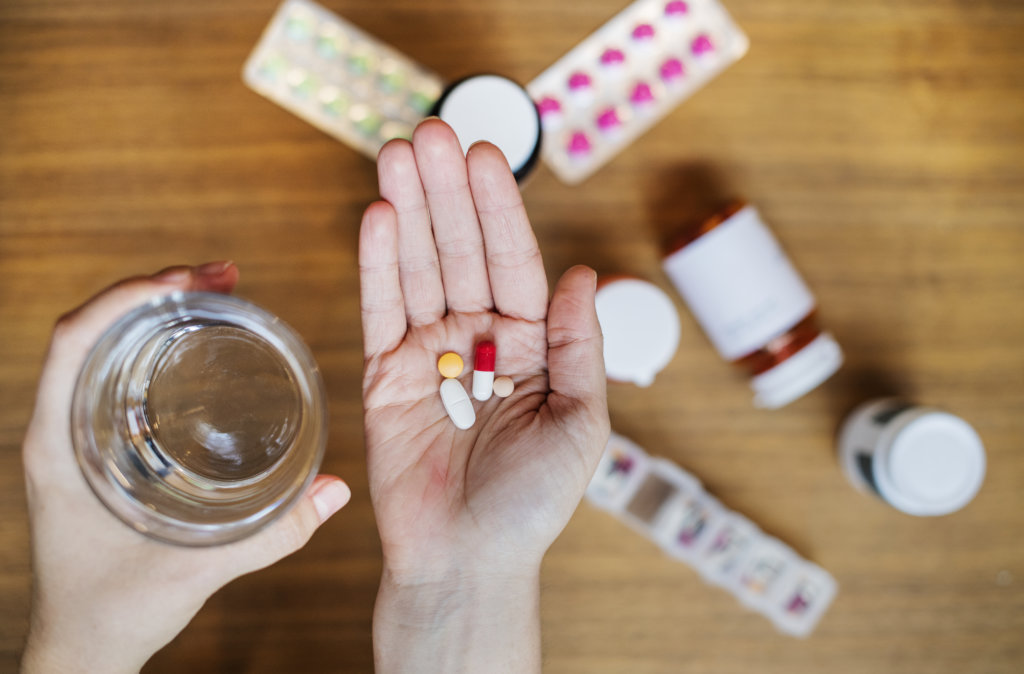When a person is using a prescription medication in the wrong way it is called prescription drug abuse. Problematic use of prescription drugs includes injecting ground-up pills to get high or even taking your friend’s painkiller for your backache. The abuse of drugs may become compulsive and ongoing, despite all the negative consequences.
It is an increasing problem that can affect people of all ages, including teens. Most abused prescription drugs are anti-anxiety medications, stimulants, opioid painkillers, and sedatives. Early intervention and early identification of prescription drug abuse can prevent this problem from becoming an addiction.
Symptoms
Signs and symptoms of prescription drug abuse depend on the drug type. Mind-altering properties of the following prescription drugs that people abuse make them the most popular:
Stimulants, such as amphetamine (Adderall, Mydayis, XR) and dextroamphetamine (Dexedrine), methylphenidate (Concerta, Ritalin, others). They are meant to treat hyperactivity/attention-deficit disorder (ADHD) and some sleep disorders.
Opioids, such as Percocet and Oxycontin, contain hydrocodone, such as Norco. These drugs are used to treat pain.
Sedatives and Anti-anxiety medications, such as diazepam (Valium) and alprazolam (Xanax), and hypnotics, such as zolpidem (Ambien), intended to treat sleep disorders and anxiety.

Here are symptoms and signs of prescription drug abuse, depending on their type:
Stimulants:
Feeling high, high blood pressure, irregular heartbeat, high body temperature, agitation, anxiety, insomnia, paranoia, increased alertness, and reduced appetite.
Opioids:
Feeling high (euphoria), nausea, drowsiness, slowed breathing rate, poor coordination, confusion, constipation, the increased dose required for pain relief, increased or worsening sensitivity to pain with higher doses.
Sedatives and Anti-anxiety medications:
Confusion, dizziness, problems with memory, poor concentration, slurred speech, drowsiness, unsteady walking and slowed breathing.
Other signs of prescription drug abuse:
- Increase or decrease in sleep
- Taking higher doses than prescribed
- Stealing, forging or selling prescriptions
- Continually “losing” prescriptions or requesting early refills
- Excessive mood swings or hostility
- Poor decision-making
- Seeking prescriptions from more than one doctor
When it is time to seek help?
Talk to your family, friends, and doctor if you are feeling like you have a problem with overusing prescription drugs. Medical professionals are there to help you, not judge you, so don’t feel embarrassed. And remember: it is much easier to deal with this problem early before it turns into an addiction and will cause more serious problems.
Causes
Why do adults and teens abuse prescription drugs? Here are some reasons that might cause this problem:
- To relieve tension or relax
- Get high or feel good
- Experiment with the mental effect of drugs
- Increase alertness or reduce appetite
- To be social and be accepted by peers
- Improve academic performance and increase concentration
- Prevent withdrawal and maintain an addiction
Risk factors for prescription drug abuse
Here are some of the risk factors for prescription drug abuse:
- Family history of drug abuse problems
- Present or past addictions to substances, including tobacco and alcohol
- Exposure to a social environment where there is a drug use
- Certain pre-existing psychiatric conditions
- Lack of knowledge about potential harm of prescribed drugs
- Easy access to prescribed drugs

Complications
Prescribed drug abuse can cause problems with mental and physical health. Some of the consequences can be very dangerous, such as death – when combined with other illegal drugs, alcohol, over-the-counter medications, and taking high doses.
Medical consequences
Here are some of the serious consequences and negative effects of prescription drug abuse:
Stimulants might cause serious heart problems, dangerously high body temperature, seizures or tremors, high blood pressure, aggressiveness, hallucinations, and paranoia.
Opioids can cause slowed breathing rate and breathing to stop, low blood pressure, or coma. Overdose of opioids has a significant risk of death.
Sedatives and anti-anxiety medications can cause slowed breathing, low blood pressure, and memory problems. Drug overdose might cause death or coma. Instant stopping of these drugs can cause withdrawal symptoms that include seizures and nervous system hyperactivity.
Prevention
How can prescription drug abuse be prevented? If you are taking commonly abused prescription drugs, make sure you know the ways to reduce the risk of drug abuse.
Make sure you are using the right medication. Check in with your doctor. Read and follow directions carefully. Only use drugs in the way they were prescribed. Make sure you know what your medication does and what to expect from it. Never take another person prescribed drugs. Don’t order drugs online unless they are from a pharmacy.
Preventing teen prescription drug abuse
Often young people misuse drugs and there are effects of drug abuse on the family. That’s why it’s important to know and follow these steps to help your teen prevent prescription drug abuse.
- Discuss the dangers.
- Set rules. Let your teen know that he/she should only take the dose prescribed and talk to the doctor before making changes.
- Discuss the dangers of alcohol use. Taking alcohol with medications will increase the risk of accidental overdose.
- Keep your prescription drugs safe.
- Make sure your teen isn’t ordering any drugs online.
- Properly dispose of medications. Don’t leave unused or expired drugs around.
Hathway recovery offers a variety of addiction services to meet your needs, including individual consultation, prescription drug abuse prevention programs, and the Outpatient Addiction Program and Intensive Addiction Program. We are here to help you to deal with the consequences of prescription drug abuse and addiction. If you have any questions about prescription drug abuse you can contact us today. And remember there are many drug abuse stories with a happy end!






